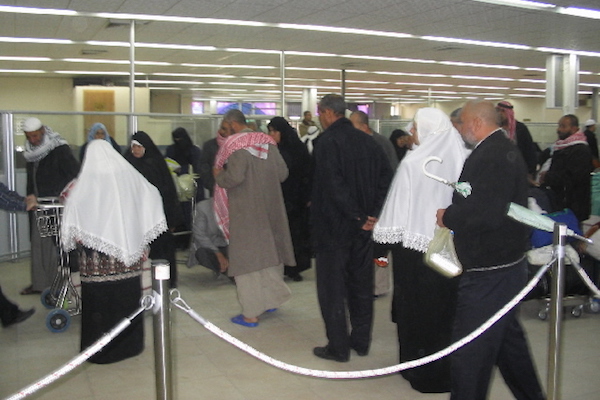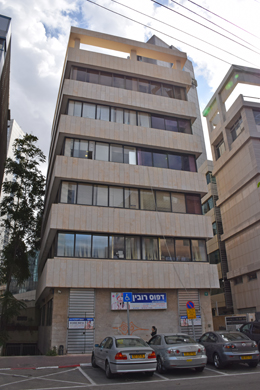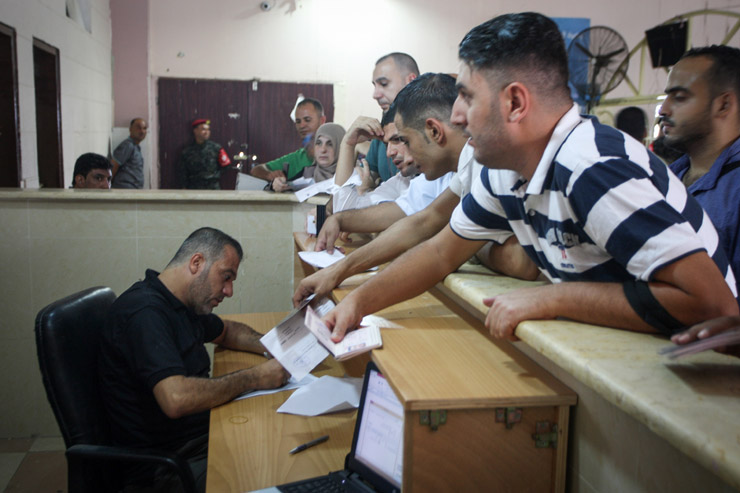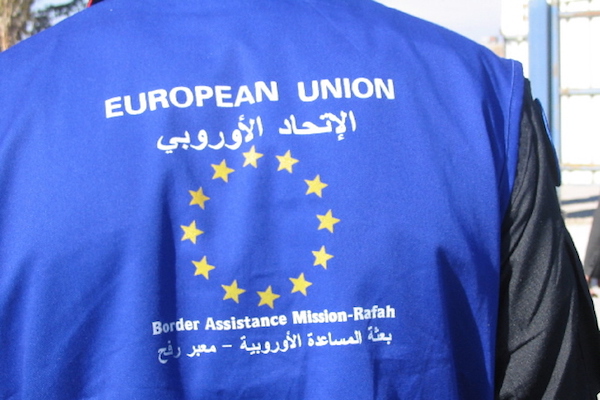Gaza’s Rafah border may reopen soon now that Fatah and Hamas have agreed to a reconciliation deal. But that doesn’t mean that the EU mission, which has been sitting and waiting near Tel Aviv at a cost of millions of euros a year, will be going back to work anytime soon.
For the past 10 years, a group of European Union border monitors has been waiting inside Israel for the elusive, far-off moment when they can redeploy to the Gaza Strip, to supervise the border crossing separating Gaza and Egypt.
If the reconciliation deal between Palestinian factions Fatah and Hamas signed in Cairo Thursday survives and is implemented, those 10 years of waiting — and the millions of euros spent waiting — could simply vanish into thin air.
The European Union Border Assistance Mission Rafah, or EUBAM as it is known, was created in 2005 — after Israel withdrew its military from the Gaza Strip — to support the implementation of a bilateral agreement between Israel and the Palestinian Authority. EUBAM was supposed to monitor the PA-run border crossing, run up until that point by Israel, and operate a nearby liaison center where Israeli, EU and Palestinian officials monitored everything that went on at the Rafah crossing.

In theory, the arrangement with the European monitors was supposed to be the first time in history that Palestinians controlled any international border leading in and out of Palestinian territory. In reality, Israel maintained ultimate control over the border crossing. Israeli control was maintained by defining who could pass through and even vetoing individual travelers, but also going so far as to force the entire border closed by refusing to let the EU monitors travel from their home base in Ashkelon into the Gaza Strip.
Nevertheless, the Rafah border was open for all but two days during the first seven months of EUBAM’s deployment, with over 1,300 passengers crossing it each day. Then Hamas captured Israeli soldier Gilad Shalit, Israel re-occupied a strip of land inside Gaza along the Egyptian border, and the crossing was open less than one-quarter of the time in the year that followed. When Hamas ousted Fatah from Gaza in 2007, the border officially closed and it has not regularly operated since.

Instead of returning home, however, the European monitors held steady. For the past 10 years EUBAM has maintained its force in Israel, first in Ashkelon and now headquartered on the top floor of a non-descript office building with no sign in Ramat Gan, just outside of Tel Aviv. In recent years, operating that mission has cost EU taxpayers upwards of 1 million euros. In July the European Union extended EUBAM’s mandate yet again, with an even higher budget of €1.98 million the coming year (July 2017 through June 2018).
The chances of EUBAM ever redeploying, certainly under the current mandate, are slim to none. Authorized exclusively within the framework of a bilateral agreement between Israel and the Palestinian Authority, one which according to dozens of leaked documents published by Al Jazeera as part of the “Palestine Papers,” the PA was unhappy with from the start. Israel was overstepping its authority and neglecting to fulfill its obligations, Palestinian officials wrote on numerous occasions.
By 2009, two years after the border was closed and as EUBAM monitors had nothing to do but wait for Fatah to regain control of Gaza, Palestinian officials wrote that the agreement which gave EUBAM its mandate was too flawed to serve as the basis for reopening Rafah. The idea that Mahmoud Abbas, with little to gain from ingratiating himself with Israel, would agree to hand it much power over Rafah, the sole shard of sovereignty he has to show after years of failed and ineffectual diplomacy, seems far-fetched.
Furthermore, Hamas is likely to have some sort of role in running the Rafah crossing, according to numerous reports on the reconciliation deal published Thursday, a detail that would almost certainly preclude a return of European monitors whose very presence is subject to Israeli approval. A more likely scenario is that Israel, knowing it has less leverage with the PA than it did 12 years ago, will try to pressure Egypt to implement its own strict controls on the southern side of the border.

Reached last week, the Ramat Gan-based EUBAM Head of Mission declined to answer +972 Magazine’s questions about what the observers, who have numbered in the dozens over the years, have been doing for the past decade and what it would take for them to redeploy to Rafah should Fatah and Hamas resolve their differences. The mission’s press officer was on leave and did not respond to several requests for an interview.
According to publications on the mission’s website and various correspondences revealed through the Palestine Papers, EUBAM specialists have done several trainings for Palestinian border and customs officials over the past decade, although every border crossing in and out of Palestine is controlled by Israel. Furthermore, EUBAM needed Israeli approval even to do those training sessions.
So how long will European taxpayers foot the nearly 2-million-euro bill for a mission that does little more than await the resurrection of the long-expired political circumstances that brought a few dozen border monitors to Israel-Palestine in the first place? Will they stick around even if the Rafah border is reopened under an arrangement that doesn’t include them?
Of course, that assumes the Fatah-Hamas deal is ever implemented. Previous attempts at reconciliation have progressed much further and stalled before they could be implemented.


